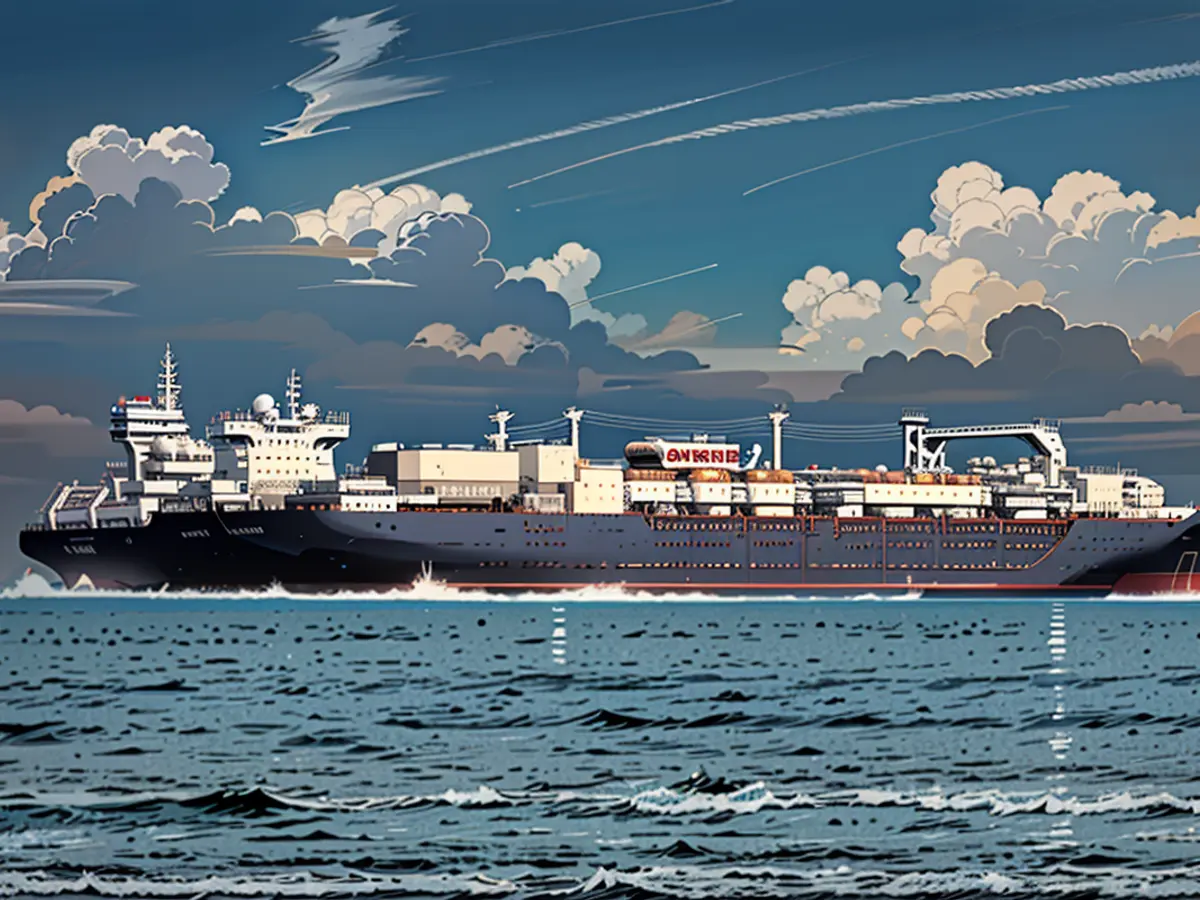Energy - Floating LNG terminal "Neptune" arrives in Mukran
The special ship "Neptune," used as a Floating Storage and Regasification Unit (FSRU) for LNG (Liquefied Natural Gas) terminals, has arrived at the industrial port of Mukran on the island of Rügen in the Baltic Sea. In the coming days, the second such Regasification ship "Energos Power" is expected, completing the energy terminal "Deutsche Ostsee" as stated by the company Deutsche Regas. The terminal is expected to have a regasification capacity of up to 13.5 billion cubic meters of natural gas per year and cover up to 15 percent of Germany's total natural gas demand.
These ships are referred to as Floating Storage and Regasification Units, capable of not only loading but also warming up and converting the chilled LNG back into a gaseous state and injecting it as natural gas. "With our terminal in Mukran and the good connection to the European gas transmission network, we will be able to make a significant contribution to ensuring supply security soon," said Ingo Wagner, managing partner of Deutsche Regas.
The "Neptune" was one of the first floating LNG terminals in Germany. It reached its operational site in Lubmin at the end of 2022 and began operations in early 2023. The Rügen terminal is connected to the gas transmission network node in Lubmin via a specially built pipeline.
The terminal is controversial. Critics speak of unnecessary overcapacity and damage to the environment and nature. The federal government defends the Rügen terminal by referring to supply security. In the face of the Russian attack on Ukraine, it has accelerated the expansion of its own LNG import infrastructure to become less dependent on Russian gas.
- The special ship "Energos Power," similar to its predecessor the "Neptune," will Help increase the capacity of the LNG terminal in Mukran, located in the industrial port of Rügen in the Baltic Sea.
- once the "Energos Power" arrives at Mukran, it will join the "Neptune" in the Baltic Sea, contributing to the energy terminal "Deutsche Ostsee" in Mecklenburg-Western Pomerania, which primarily focuses on Liquefied natural gas Shipping.
- The arrivals of these special ships, such as the "Neptune" and "Energos Power," will significantly enhance the region's ability to receive, store, and convert liquefied natural gas into a gaseous state for transportation to various parts of Germany.
- In addition to supporting the energy needs of the country, the gas from these terminals will travel through the European gas transmission network, ensuring the secure supply of LNG to numerous cities and towns, including those near the Baltic Sea and the island of Rügen.
- As a result of these floating LNG terminals, ships like the "Neptun" and "Energos Power" will contribute to Germany's energy security by reducing dependence on gas imports from specific countries, such as Russia, and increasing the overall supply of natural gas in the region.








